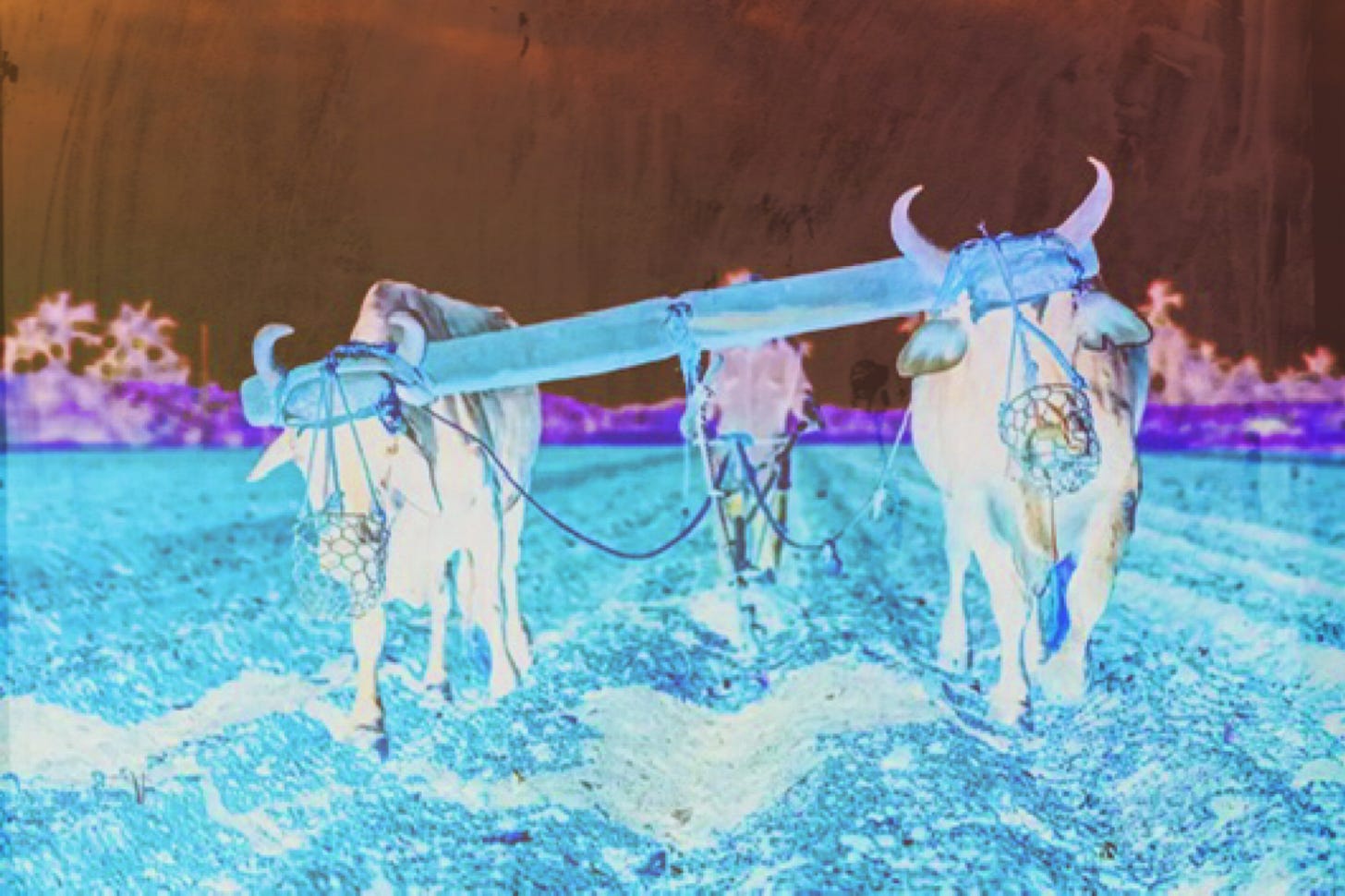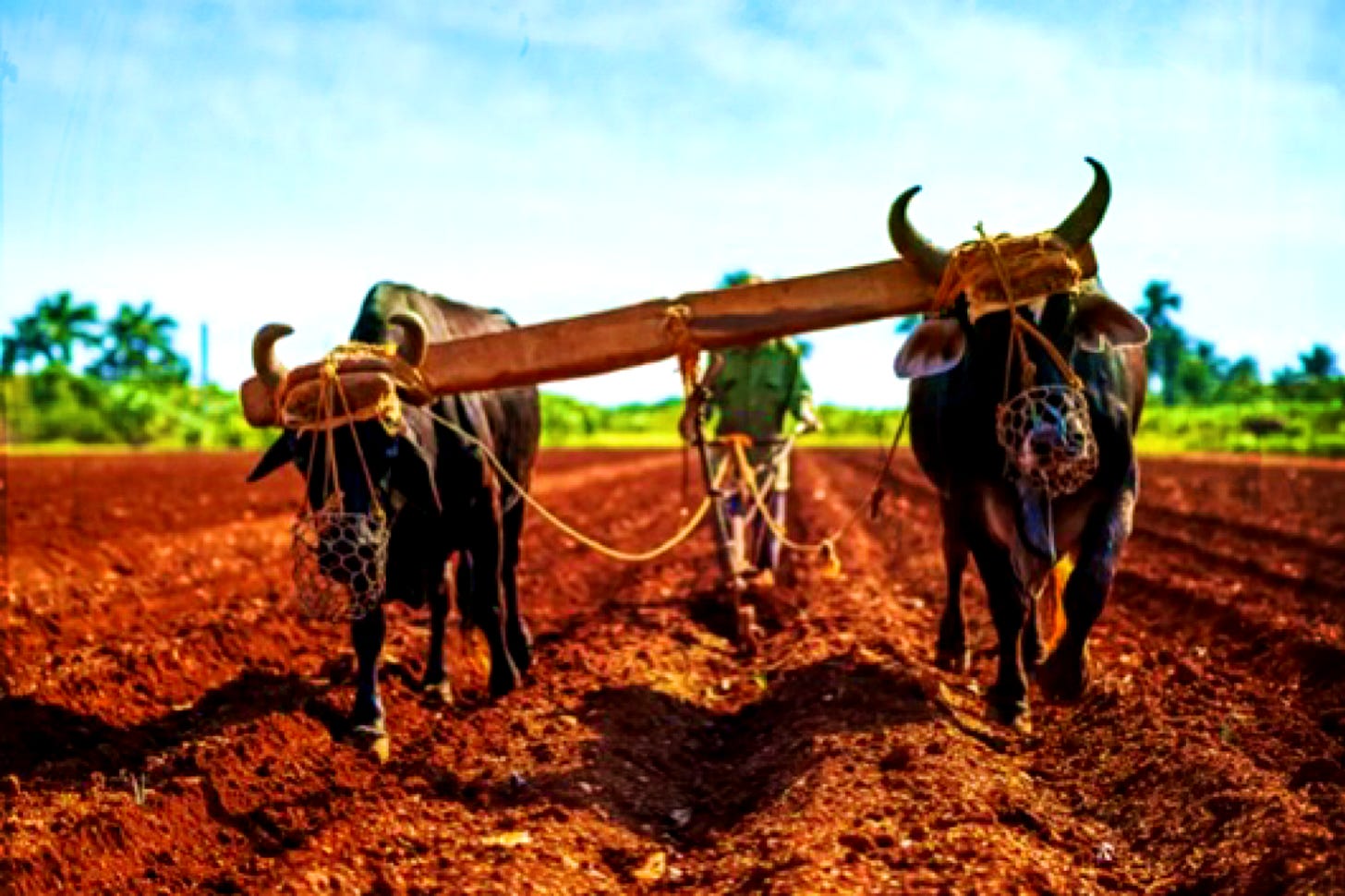The Ease of Obedience
The Gospel of Matthew
“Come to me, all you who are weary and burdened, and I will give you rest. Take my yoke upon you and learn from me, for I am gentle and humble in heart, and you will find rest for your souls. For my yoke is easy and my burden is light.”
Despite what my hippy-ish appearance might suggest, I have a deep fondness for rules, structure, and order. Indeed, for me, a large part of the joy of teaching is the daily, weekly, and half-termly structures – punctuated with periods of leisurely liberty, long pauses, and lie-ins. In general, I could happily eat the same meal every day, wear the same clothes, and do the same sorts of things. Fortunately, I am married to someone who appreciates variety, adventure, and food – and wants a range of experiences for us and our children – otherwise we would be locked into some fairly predictable, well-ploughed, patterns of pottering along. I do love to potter though - I’m pottering now!
So, it will come as no surprise that I nearly became a monk – which I think is a wonderful way to be in the world – perhaps we need more monks, nuns, and anchorites in this day and age. Sadly, I was in it for all the wrong reasons – mainly the robes - trying escape from freedom – flee from desire – run away. I reflect a little on such things in an earlier post. But, I’m all for solemn vows of obedience – such lawfulness can be liberating.
Indeed, I am struck by the paradoxical nature of Christ’s imagery for a peaceful, easy, and lightness of life in his teaching - a yoke – which is both a symbol of communion and obedient enslavement.
For me, Christ seems to partly be pointing towards the freedom of following. The salvation of surrender. Not to any old ‘yoke’ though - some ‘yokes’ are deeply annoying, difficult to wear, and lethally lonely. But Christ’s ‘yoke’ is ‘easy’ and his ‘burden is light.’
But how does it work? How does one ‘take’ Christ’s ‘yoke’? How do we follow Christ? Well, the Good News is, it’s not about believing really difficult things, or worshiping ideas that are difficult to sing, or joining groups that are disturbingly difficult to stomach - which is all to say, it’s not about becoming a ‘Christian’. Phew! It’s not about purity codes, ethical stances, political tribes, creedal concerns, doctrinal details, declarations of faith, blah blah blah...
It’s about communion. It’s about participation. It’s about realisation.
We are called to awaken to the truth of who we are and where we are: divine dancers, dancing in a dancing being (I sometimes call it Christ).
Sin means separation. And Christ teaches us that religion, rituals, riches, moral rules, and self-righteousness have a seductive power in separating us from the truth that sets us free - the yoke that brings us ease: the living experiential-perspective of who and where we are. Yes, it is often costly to detach from the other ‘yokes’ on offer – which might look good – sound better – seem safer – and may offer way more social status and standing in our families, friendship circles, and cultural institutions. But there are no packaged-deal programmes, courses, orders, communities, lifestyles, jobs, creeds, churches, prayers, apps, videos, books that will substitute for Christ’s ‘yoke’. As Christ puts it, ‘The Kingdom of God is Within You’ - it’s not something you can delegate, surrogate, or syphon-off to someone, somewhere, or something else. I like how Elizabeth Gilbert expresses her divine realisation from an ashram in India in Eat, Pray, Love:
“God dwells within you as you yourself, exactly the way you are. God isn’t interested in watching you enact some performance of personality in order to comply with some crackpot notion you have about how a spiritual person looks or behaves.”
...
“To know God, you need only to renounce one thing – your sense of division from God. Otherwise, just stay as you were made, within your natural character.”
And, of course, these revelations occurred within a particular time, place, religious community, with specific meditation exercises, seva duties, and daily classes on The Bhagavad Gita. Perhaps, therefore, we paradoxically need rules, rhythms, religions, rituals, and relationships in the external realm in order to experience The Kingdom Within.
But, may I suggest, choose your ‘yoke’ wisely – they are not all good – both in a subjective and objective sense. Subjectively, some expressions, symbols, and structures will better fit our unique idiosyncrasies, stories, and styles. Others may trigger all sorts of self-sabotaging responses, and not lead us to The Kingdom Within.
However, it’s not all good. Objectively, some religious theologies, creeds, communities, rituals, practices, philosophies, and observances are fundamentally in opposition to the truth that sets us free. Such ideologies can insidiously separate, split, and sever us from who we are, and where we are. They divide us from divinity. They cut us up – mind, body, and soul. They turn language into idols. Quotes into swords. War stirs from their thoughts:
Up vs Down
God vs Man
Pure vs Dirty
Holy vs Forbidden
Word vs Image
Submission vs Sin
Message vs Music
Modesty vs Flesh
Discipline vs Dancing
Martyrs vs Mystics
Light vs Dark
Mind vs Heart
Heaven vs Earth
Perhaps, even more than trying to find the fine fertile soils needed for greater consciousness, we need to heal and redeem those hopes, fears, and wounds we undoubtedly bring to our parties – whether our party is a new relationship, job, project, home, community, psychology, therapy, sport, goal, creative expression, and spirituality. Yes, it seems wise to seek, find, and cultivate the right conditions for growth - but we also need to remember that a large part of becoming whole occurs when we allow all our prodigal projections to return home to us – so that we may reconcile them, celebrate them, transmute them, within the gracious golden light of our soul’s awareness, compassion, and imagination.
In other words, however well-suited we are to parenthood, priesthood, marriage, monasticism, asceticism, academia, musicianship, therapy, forestry, farming, writing, gymdom, etc (and all the vows of obedience needed for such work) these external domains are not what we truly seek. And yet, these material vessels of our life matter massively in their ability to contain, as they will provide the place in which we must face all that we have projected onto such plans, ambitions, and expectations. So it makes sense to make such places feel as sane and satisfying as possible, because they will crack and crumble under the pressures of our returned projections. And if our foundational spaces are not built upon the true rock of being itself - incarnate divinity - and only on the sands of circumstance, survival, and status, then we will never be strong enough to weather the destructive storms that will inevitably arise from all the dark material we have denied, rejected, and repressed within. We will break. We will scatter. And in turn, we will continue to burden ourselves with the toilsome bother of re-building more desperate-to-please sandcastles, under harsh summer suns, and long rainy days, anticipating the inevitable disappointment, dissatisfaction, and despair of such futile, fruitless, and frustrating labour. Hell on earth! And sadly, there are ideologies who use such sacrificial-submissive-sweat as proof we are on the right track – fighting the good fight – being a good martyr - double-down!
But in the words of the flesh-divine, spirit-body, wine-child, bread-life, Christ:
“Come to me, all you who are weary and burdened, and I will give you rest. Take my yoke upon you and learn from me, for I am gentle and humble in heart, and you will find rest for your souls. For my yoke is easy and my burden is light.”
Take it easy
Keep it light
In the knowledge of who we are
Where we are
And what we are looking for
Amen




